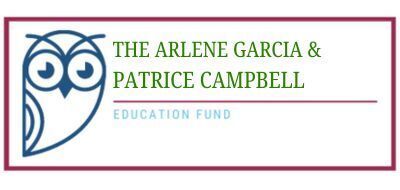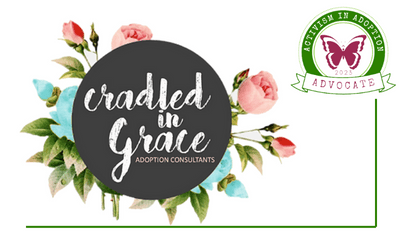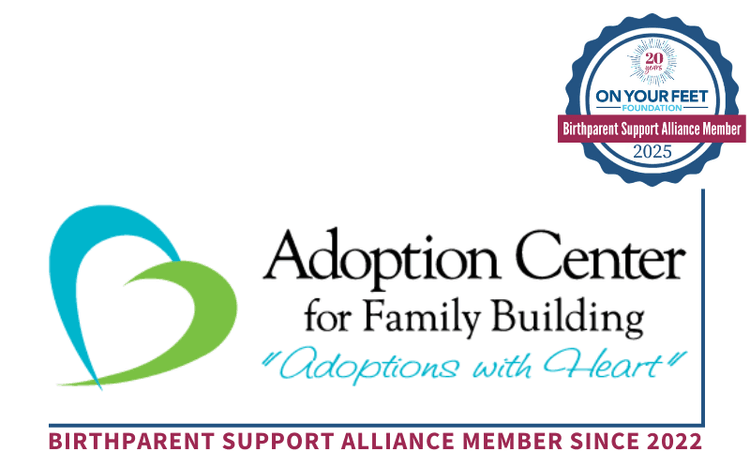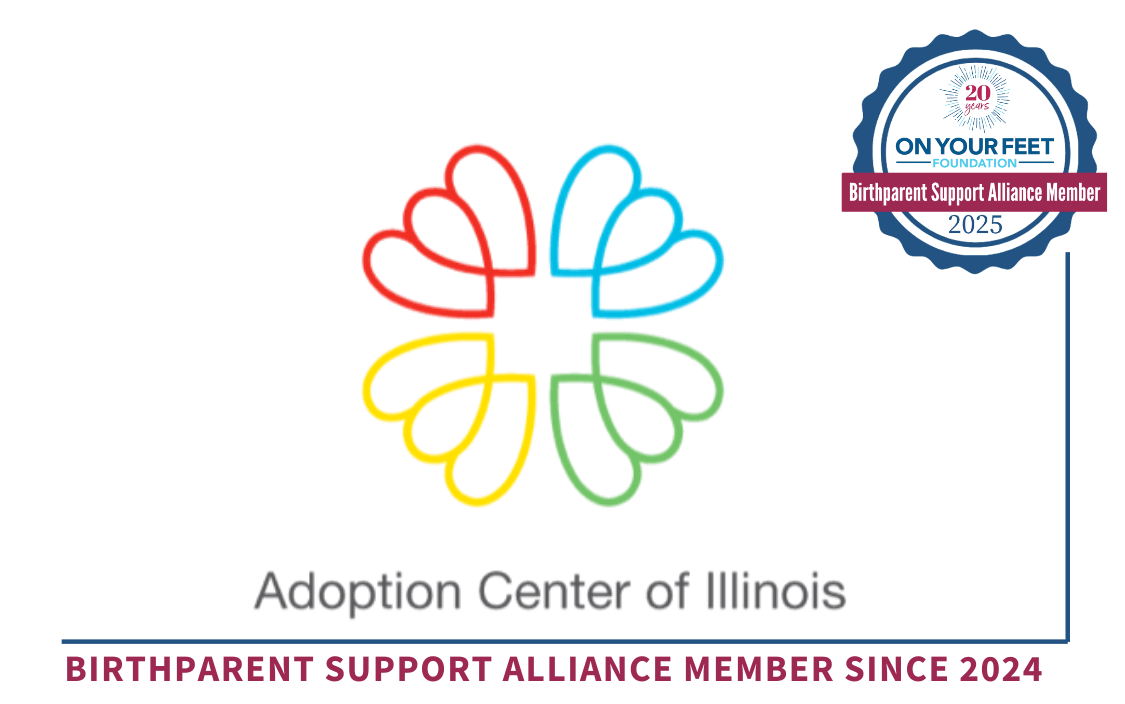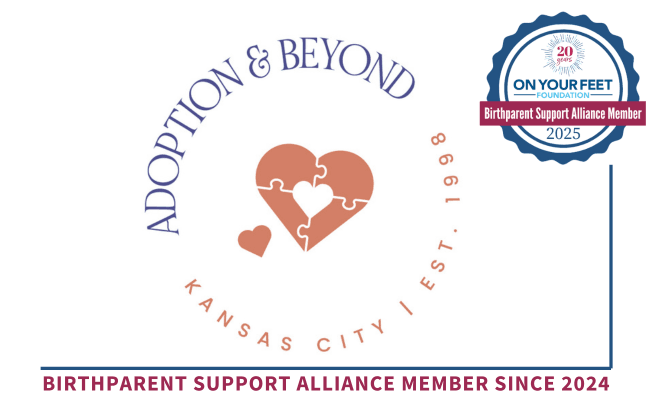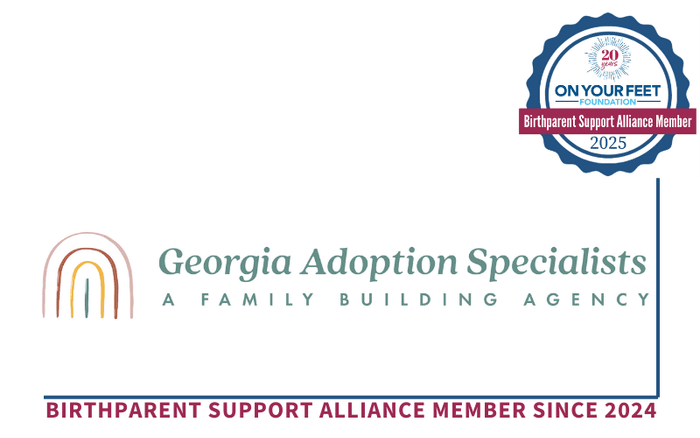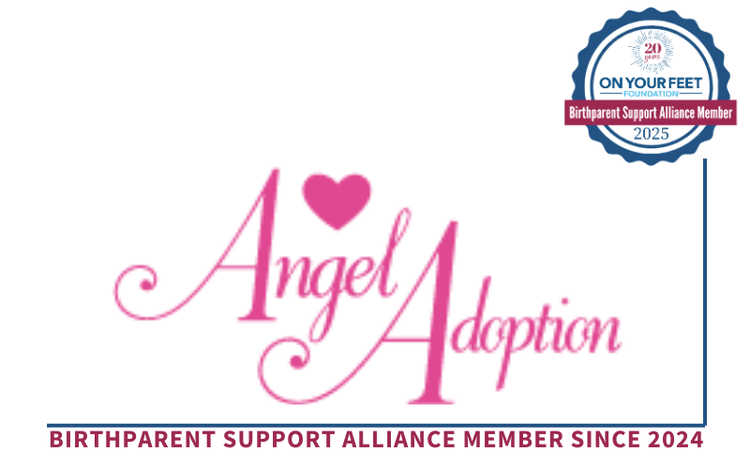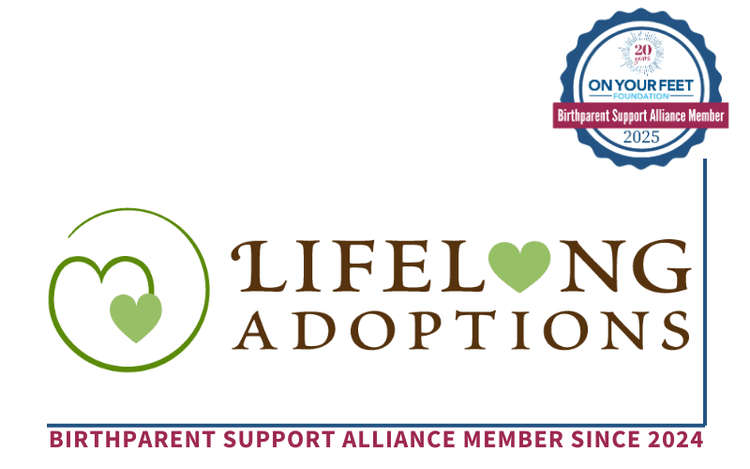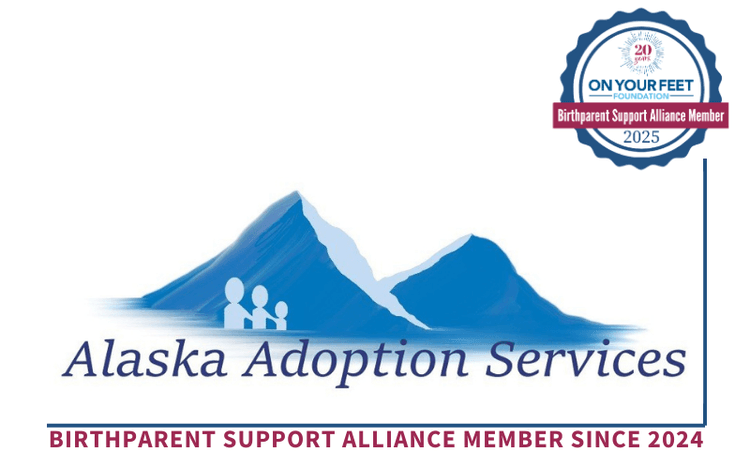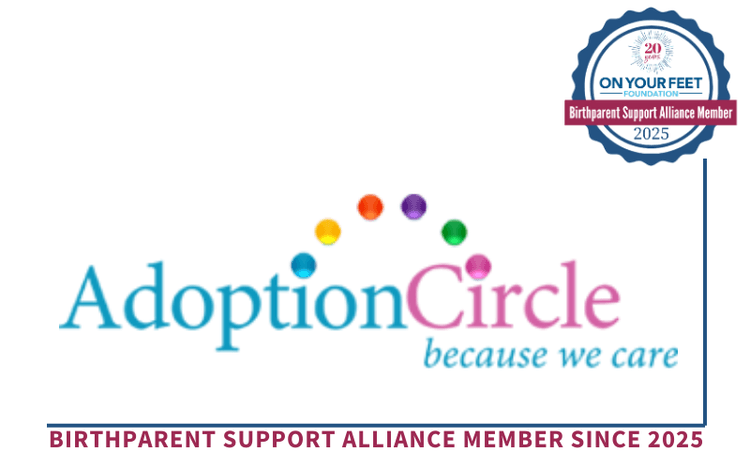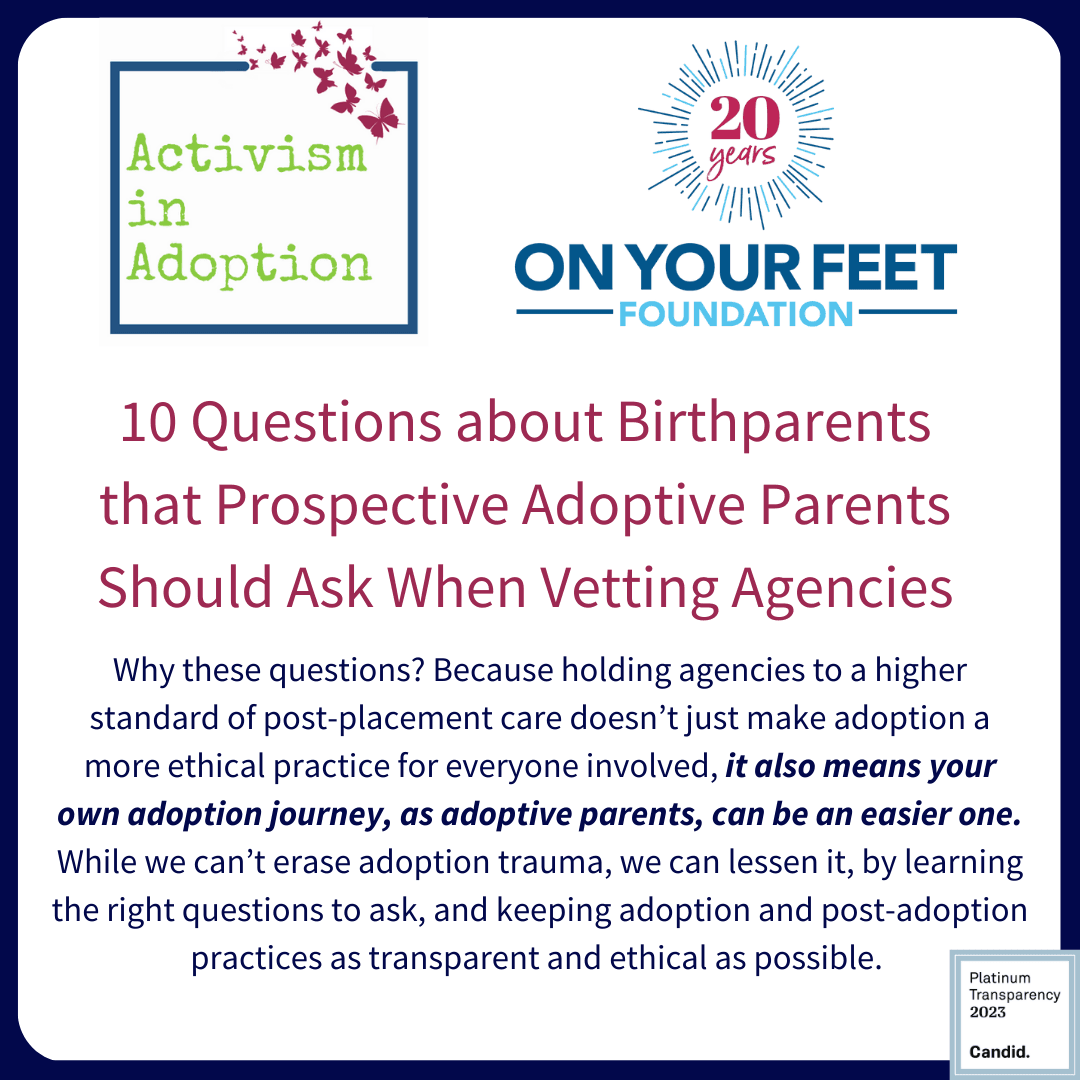
On Your Feet Foundation does not take a position on adoption. However, we do advocate for ethical adoption practices through Activism in Adoption. As long as adoption exists, we must work to ensure that every adoption is ethical and that every expectant parent and birthparent is treated with dignity and respect, which includes having full knowledge of their rights and options. Ethical adoptions help to ensure better outcomes for all members of the adoption constellation.
“Our birthparents are like family to us,” one adoption agency’s glossy brochure states. “We offer support for a lifetime,” another website reads, without detailing what that support might be, or how often it is being accessed. A critical part of choosing an agency, for adoptive parents, should be understanding exactly what kind of support, and for how long, their child’s birthparents - both birthparents - receive support, because that support, or lack thereof, can make a big difference in your family’s adoption experience, for a lifetime. Open adoption is about building relationships that serve the best interest of adoptees, and it is incredibly difficult to have a healthy open adoption if a birthparent doesn’t receive the help they need, whenever they need it, to work through their grief and heal.
Transparency in post-placement support and services is critical in ethical adoption, but is rarely discussed with adoptive parents, except in sweeping generalizations. Given how critical that support is for an open adoption to be successful, we have compiled a list of questions for prospective adoptive parents to ask when searching for an agency to work with. The power to make sure adoption is ethical resides with prospective adoptive parents, and one of the ways you can do that is by digging below the platitudes and marketing strategies, and getting real data on exactly what level of support expectant and birthparents at each agency are receiving, and how it is being delivered, information that can draw you a roadmap of the kinds of outcomes you might see in your own adoption, depending upon the level and duration of post-placement support your child’s birthparents receive.
There are millions of birthmothers, in America alone – just America – who weren't educated, weren’t given options counseling, and aren’t getting supported afterwards, and that is a huge, huge problem. When you look at post-placement care, this is why On Your Feet (Foundation) exists.- Hope O Baker, Birthmother, Author of Finding Hope: A Birthmother’s Journey into the Light
Every agency we speak with acknowledges that their birthparents do not access the post-placement resources offered by the agency even when significant opportunities are available for support. Agencies also acknowledge something we know well – that the reason birthparents do not return to the agency for post-placement care is due to the trauma of the placement – birthparents do not want to return to the place where they relinquished their parental rights, to work with the same people who helped them plan their adoption. This is why On Your Feet Foundation exists - to be a neutral place of support, not affiliated with the trauma of placement, and ready to meet each birthparent who comes to us where they are. That being said, it is critical that, when vetting agencies, prospective adoptive parents ask the hard questions and ensure that the agency’s birthparents have access to support - not just a few counseling sessions, not just for the first six months, but for a lifetime. Multiple avenues to that support are also necessary: birthparents should not be forced to return to the agency through which they placed in order to receive post-placement care. And this level of care doesn’t just benefit birthparents – it improves outcomes for all members of the adoption constellation.
So, when vetting agencies, we recommend starting with this question:
How many adoptions have you facilitated in the past five years, and can you provide a breakdown of exactly what post-placement services each of those birthparents received after relinquishment, both birthmothers and birthfathers? If you don’t have hard numbers, you aren’t going to have the information necessary to assess whether an agency meets your ethical needs. Further considerations need to include the following:
1. Pre-Placement Counseling: What kind of counseling is provided to expectant parents?
- How many sessions?
- Who provides that counseling, and do they have a vested interest in an adoption proceeding?
- Are all expectant parents provided information/options counseling? Ask for details about what options are available and what resources are provided.
- What percentage of expectant parents chose to parent their child after receiving that counseling? What support do you offer them?
- Are expectant parents offered any incentives to choose to place over parenting their child?
2. Post-Placement Support: Can you provide a detailed list of the post-placement services being offered to birthparents once a placement is finalized? Ask for specifics.
- Is the support readily available and outlined in advance to them, or do they have to ask for help first?
- If they have support groups, how often? Who runs them? Are they well-attended?
- Is adoption/birth parent-competent counseling available? For how long?
- If a birthparent doesn’t feel comfortable receiving post-placement care from her agency, how do you facilitate a neutral space for her to get the care she needs?
- What percentage of your birthparents are accessing this support?
- What support do you offer birthparents who are struggling in their relationship with their child’s adoptive parents?
- What direct support do you provide to ensure that the relationship between adoptive parents and birthparents is healthy?
3. Long-term Contact: How long after giving birth are you in contact with your birthparents?
- If a birthparent returns to the agency 5, 10, 25 years after placement, are they eligible for help and what services are available to them?
- Do you maintain accurate contact information? For how long?
4. Birthfathers: What support and services do you offer birthfathers?
- What steps are taken to ensure that the expectant father’s rights are being protected?
- How many birthfathers are accessing those services?
- How do you ensure birthfathers know they have access to support?
5. PMAD: How are each of your birthparents assessed for PMAD (Postpartum Mood and Anxiety Disorders; Postpartum Depression)?
- When and where does a birthmother's first assessment occur?
- How are follow-up assessments managed?
- Can you provide documentation regarding how many of your birthparents receive the recommended assessments up to a year postpartum?
- Are your birthparents provided with the resources necessary to manage PMAD? What are those resources?
6. Representation: Do your expectant parents have independent legal counsel and an independent social worker, both of which are unaffiliated with the potential adoptive parents?
- How are these services provided to them?
- Do all of your birthparents use these resources?
7. Fees to Adoptive Parents: How much/what percentage of each adoption fee is allocated to post-partum services, so that I know my child’s birthparent is receiving the care they deserve?
- How is postpartum care financed by the agency?
- What is the annual budget for postpartum care?
- How does it compare to your marketing budget?
8. Expectant Mother Outreach: How do expectant mothers find out about you?
- Where do you find them?
- Are expectant parents ever moved out of state to give birth?
- If so, what happens to them if they decide to parent their child?
- Can you show me the outreach materials they receive?
- Can you show me the paperwork they complete?
- Do you pay finder's fees to people who introduce you to birthparents?
- Are promises made to expectant parents in regards to financial assistance?
- What type of language is used when referring to expectant parents?
- Is “birthparent” ever used to describe an expectant parent/parent prior to a placement being finalized?
9. References: Do you pay reference fees to any of the families whose names and contact information you provide to potential adoptive parents?
- Is anyone compensated in any way (including reduced adoption fees) for recommending or reviewing your agency?
- Do you compensate anyone referring birthparents to you?
10. PACA Agreements and Open Adoptions: What percentage (exact numbers) of the open adoptions you facilitate are still open after 2 years? 5 years? 10 years?
- How do you define openness? Does it correlate with how expectant parents define the term?
- What resources do you provide to adoptive and birth families to navigate open adoption?
- What support do you offer birthparents whose adoption has been closed by the adoptive family?
- Is mediation offered for adoptive and birth families who need help facilitating communication?
- What support and help do you provide birthparents if their PACA isn’t being honored?
- If an adoption is initially closed, will you help facilitate opening the adoption if any member of the triad would like to?
It's a big list of questions. We know. But we cannot say this enough:
When prospective adoptive families are educated and when agencies are held to ethical standards, outcomes improve for all members of the adoption constellation.
Expectant parents should be offered options counseling, independent representation and, if they place, a lifetime of post-placement care. Adoptees deserve to know that their parents have done everything in their power to ensure that their placement was ethical, that their birthparents are cared for. This might not be easy – when you want to start a family, asking these hard questions, which could slow down an already slow process, might be the last thing you want to do. But by asking these questions, you are paving a much smoother path for everyone. We know what the outcome statistics look like for adoptees: according to the American Academy of Pediatrics, all adopted children are assumed to have trauma. A third of adolescents referred for psychotherapy are adopted, in part because trauma causes the inability to form a healthy attachment, leading to increased stress, anxiety, dysregulation, emotional control, and impairing development of the brain and nervous system. It isn’t just adoptees that are affected. Post-adoptive depression for adoptive parents shares characteristics of postpartum depression and the intensity of the child’s needs exacerbates it. Adoption depression in adoptive parents also often manifests later in the parenting relationship, and for a much longer duration, as they work to balance the needs of their adopted children with their own needs, while trying to build a healthy relationship with an unsupported, grieving birthparent. Adoptive parent depression is another form of trauma for adopted children, because it inhibits attachment and relationship-building.
Holding agencies to a higher standard of post-placement care doesn’t just make adoption a more ethical practice for everyone involved, it also means your own adoption journey, as adoptive parents, can be an easier one. While we can’t erase adoption trauma, we can lessen it, by learning the right questions to ask, and keeping adoption and post-adoption practices as transparent and ethical as possible.


